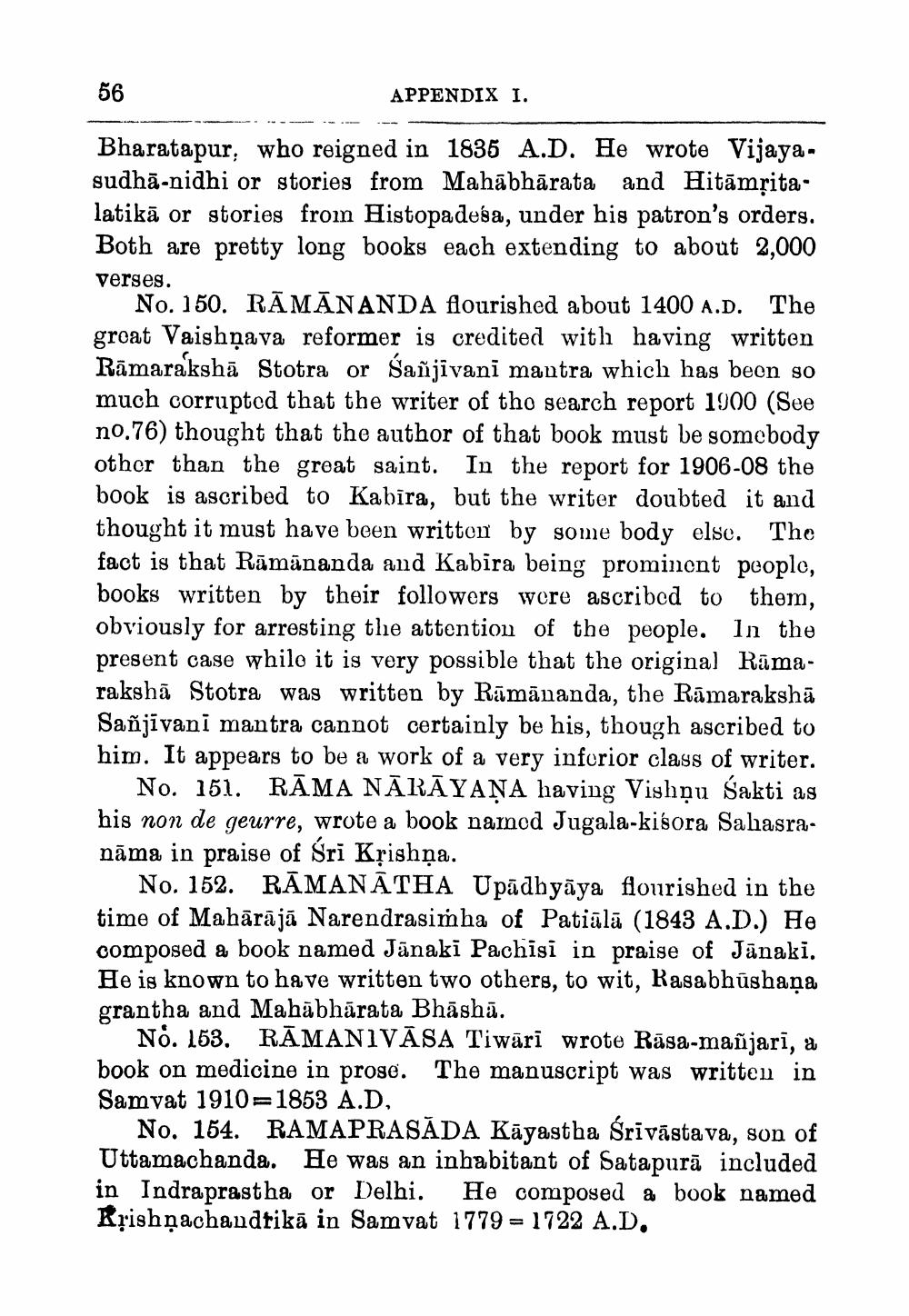________________
56
APPENDIX I.
Bharatapur, who reigned in 1836 A.D. He wrote Vijayasudhā-nidhi or stories from Mahābhārata and Hitāmritalatikā or stories from Histopadesa, under his patron's orders. Both are pretty long books each extending to about 2,000 verses.
No. 150. RĀMĀNANDA flourished about 1400 A.D. The groat Vaishṇava reformer is credited with having written Rāmarakshā Stotra or Sañjivani mantra which has been so much corrupted that the writer of tho search report 1900 (See no.76) thought that the author of that book must be somebody other than the great saint. In the report for 1906-08 the book is ascribed to Kabīra, but the writer doubted it and thought it must have been written by some body else. The fact is that Rāmānanda and Kabira being prominent people, books written by their followers were ascribed to them, obviously for arresting the attention of the people. In the present case whilo it is very possible that the original Rāmarakshā Stotra was written by Rāmānanda, the Rāmarakshā Sañjīvani mantra cannot certainly be his, though ascribed to him. It appears to be a work of a very infurior class of writer.
No. 151. RĀMA NĀRĀYAŅA having Vishņu Śakti as his non de geurre, wrote a book named Jugala-kisora Sahasranāma in praise of Sri Krishņa.
No. 152. RĀMANATHA Upādhyāya flourished in the time of Mahārājā Narendrasimha of Patiālā (1843 A.D.) He composed a book named Jānaki Pachisi in praise of Jānaki. He is known to have written two others, to wit, Rasabhūshana grantha and Mahābhārata Bhāshā.
No. 153. RĀMANIVĀSA Tiwāri wrote Rāsa-mañjarī, a book on medicine in prose. The manuscript was written in Samvat 1910=1853 A.D,
No. 164. RAMAPRASĂDA Kāyastha Śrīvāstava, son of Uttamachanda. He was an inhabitant of Satapurā included in Indraprastha or Delhi. He composed a book named Krishnachandtikā in Samvat 1779 = 1722 A.D.




